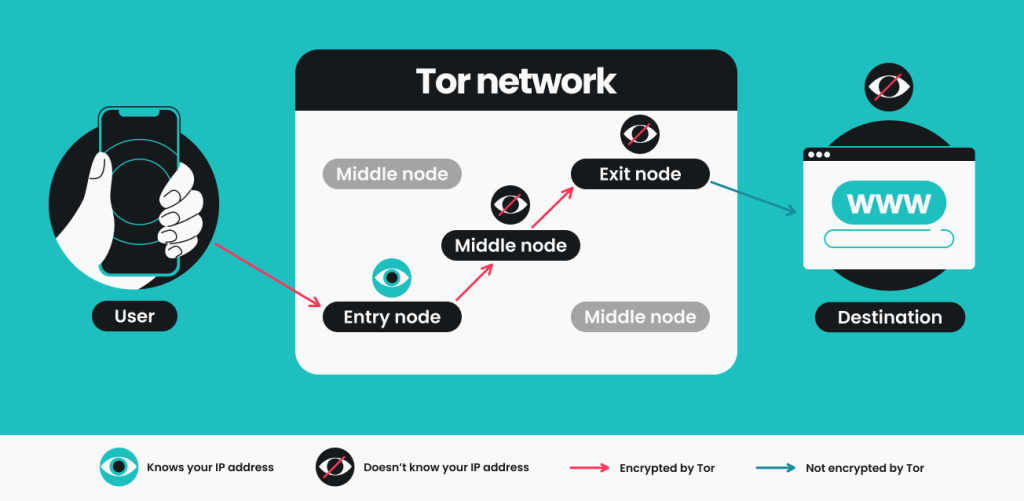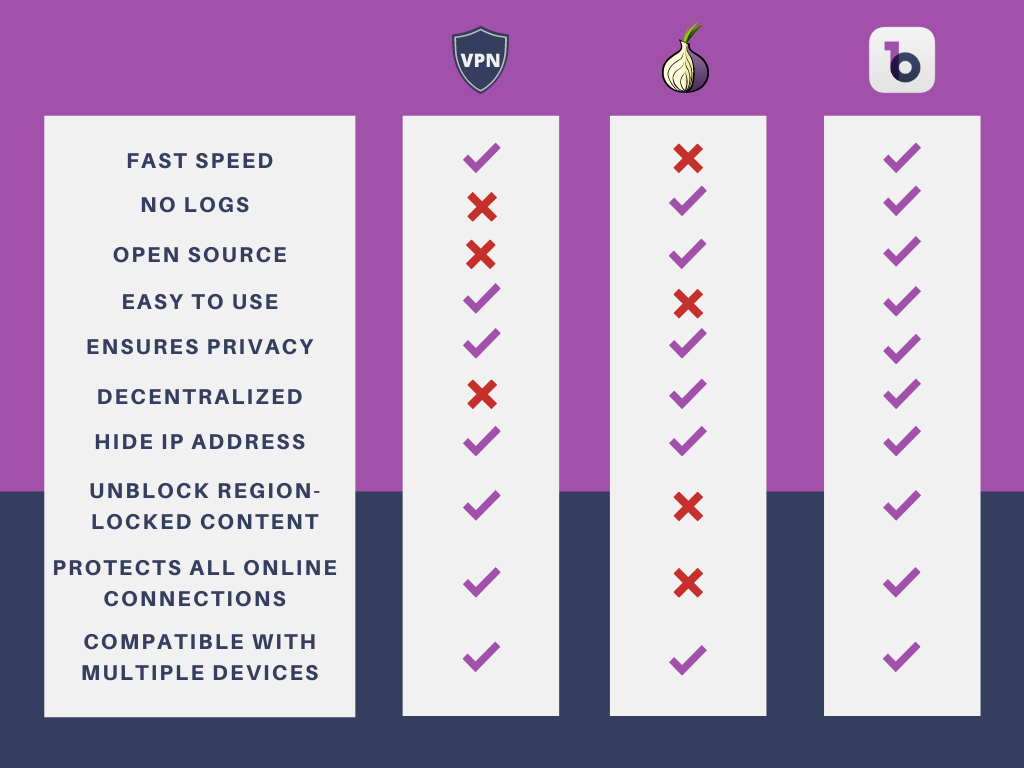Featured
Table of Contents
Tor Vs Vpn - What Are They And Which Is Better?
In practice, Tor Web browser is free, while VPNs are normally paid, which makes your option easy? Today, I desire to offer you a complete comparison of Tor vs VPN and describe what they represent, their distinctions, use cases, and much more.
To start this Tor vs VPN contrast, I initially need to describe what these tools represent. Besides, giving you a clear definition of what they are and how they work will help you understand their differences, so pay close attention. Beginning with Tor, this term is an abbreviation for "The Onion Router".
Nord, VPN It's vital to keep in mind that this is a tool for privacy and not privacy I'll discuss why quickly. When it pertains to Tor nodes, they're held and preserved by volunteers, so we're speaking about a decentralized service, instead of a centralized service which is the case with a VPN.
The great side is anonymity due to the fact that nodes aren't run by any specific business, so you aren't running the risk of keeping and logging your surfing activity by that business. On the other hand, the security of each node depends on the person that's preserving it. As such, a node can be compromised by a hacker, let's say, who will have the ability to trace your connection.
Vpn Vs Proxy Vs Tor: Learn The Key Differences In 2023
The entry node is more important due to the fact that, when connecting to Tor, your ISP can see that you did that through the entry node. That's why numerous people utilize a VPN with Tor to encrypt their connection and avoid the ISP from seeing their Tor use. We'll discuss that in the future in this Tor vs VPN short article.

Its "The Onion Router" name comes from the fact that it peels the layers of encryption likewise to the onion layers. Below, I explained how Tor works and the process of securing and decrypting your requests.
When you link to the Tor network and you send a demand, you get triple file encryption for each node. There's the entry node (frequently called the guard node), the middle node (or middle server), and the exit node. Tor sends your demand to the entry node, which gets rid of the first layer of encryption.
However, the entry node can't check out the encrypted content of the demand, so it still can't trace your activities inside the Tor network. The traffic is then sent to the middle node, which eliminates another layer of file encryption and sends the encrypted traffic to the exit node. Lastly, the exit node peels the last layer of file encryption, which is why it can see the encrypted demand but it can't identify who is sending it since it can't see your IP address.
Tor Vs Vpn: Which One Is Better? - The World's Best And Worst

If you're wanting to remain anonymous online and you're considering utilizing Tor, I believe it's good to understand more about its advantages and disadvantages, so examine them out below. The triple layer of encryption makes sure 100% privacy when using Tor Internet browser It's complimentary and doesn't need any subscriptions It's a decentralized, open-source network with no tracking and monitoring Tor Internet browser is capable of going on the dark web The entry node can read your IP address and make it visible to your ISP when using Tor Decreases your internet speed considerably due to sophisticated encryption Nodes are run by volunteers who might not do a great job at making sure they're secure You can't choose an IP address from a particular country, so you can't bypass geo-blocks Tor Internet browser doesn't deal with all platforms Wondering what are the distinctions in between Tor and VPN? Well, for the start, a VPN is a tool for personal privacy, which suggests it'll conceal your identity and prevent anybody from seeing who you are.
VPN services use countless servers in various nations, so they permit you to link to any of them quickly and get an IP from the country you need. Then, each request you send out is routed through a VPN tunnel where it is sent out to a VPN server which decrypts it and connects you to the website you want.
, for example, while Tor encrypts only the part of the connection sent through the Tor Browser.

With a single layer of encryption, the VPN actually goes through fewer actions to secure your connection which has a big benefit much faster speeds and much better efficiency. They're very simple to utilize VPNs can be set up on every platform (Windows, i, OS, Linux, Android, mac, OS, routers,) You can pick an IP address from a specific country, letting you bypass geo-restrictions There's a greater degree of accountability because you understand who owns the VPN servers VPNs are really fast and exceptional providers use 10 Gbps servers Advanced security features like a kill switch, ad blocker, and Multi, Hop Overall personal privacy, thanks to advanced encryption and the ability to hide your initial IP It's a paid service which can be a problem for budget-constricted users Some VPN services are understood for storing logs (Hola VPN, Ninja, VPN, Betternet,) You need to pick a trustworthy VPN that has a no-logs policy given that you're handing over your privacy/anonymity to that company Now that you what Tor and VPN are, I feel the requirement to rapidly summarize their distinctions simply to make sure you comprehend everything well.
Latest Posts
The Best Popular Vpns For Business In 2022
5 Best Vpns For Warzone — Get Easy Bot Lobbies In 2023
12 Best Vpn Service Providers In 2023